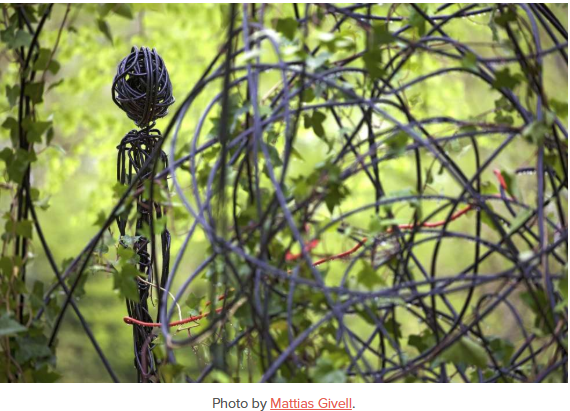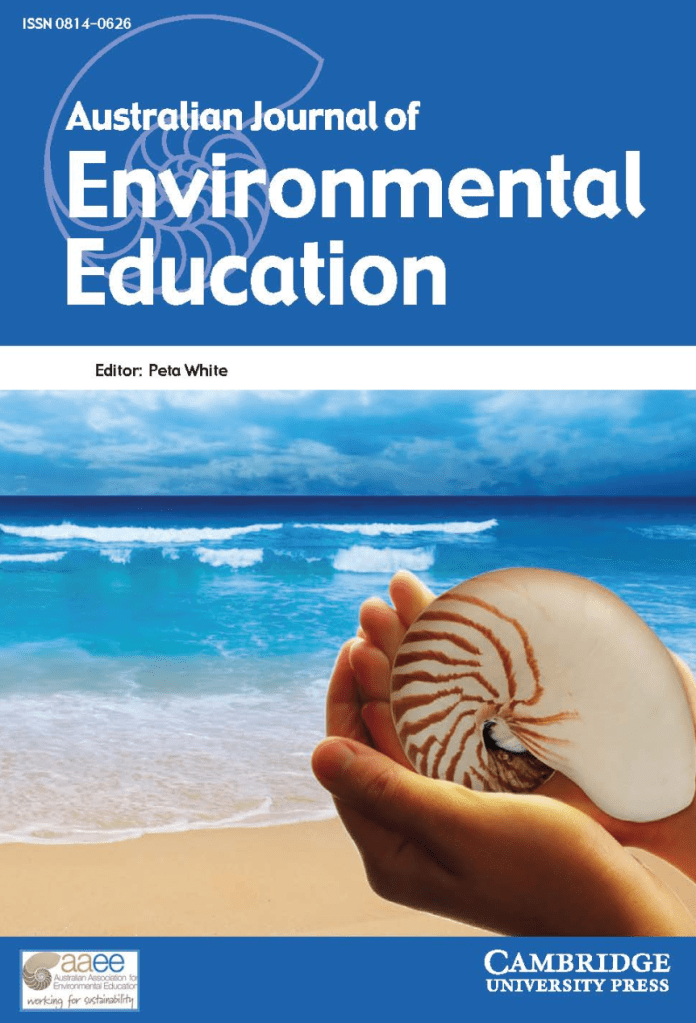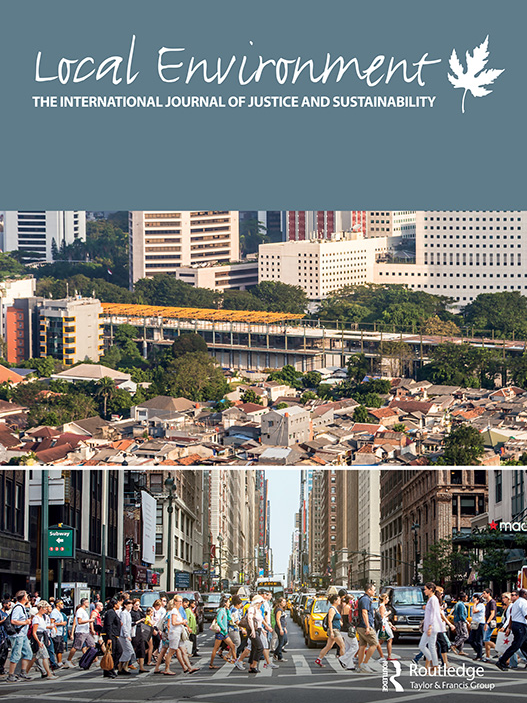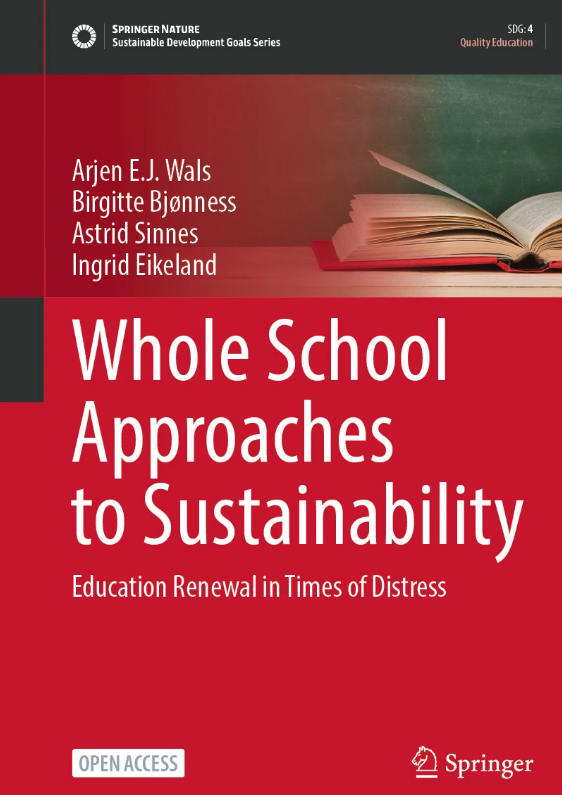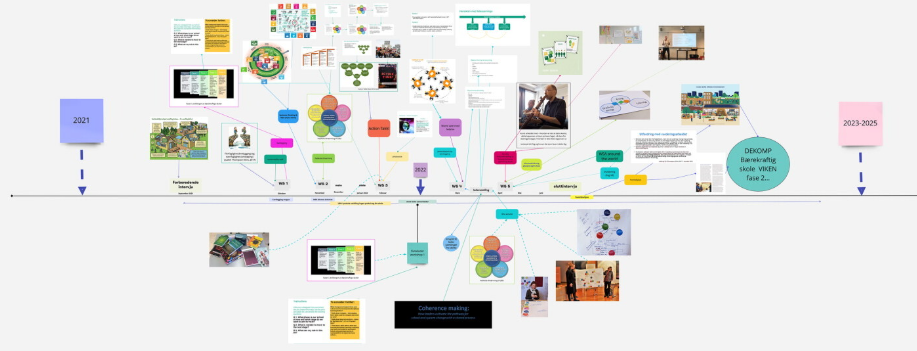
This is the first multimedia article that I have been involved in!
Led by PhD Rosalie Mathie the paper with its visual timelines, digital storytelling and integrated video’s, explores a Norwegian Continuing Professional Development (CPD) programme co-developing professional learning practices concerning a Whole School Approach (WSA) to sustainability-oriented education.
Eleven teachers from four upper-secondary schools participated as co-developers in a year-long CPD and research combined programme, which also involved multiple school leaders, university-based educators, and researchers. Conventional CPD and data collection methods, including interviews, questionnaires, academic lectures, and research-informed activities, were combined with experiential approaches and the introduction of participatory methods such as photo-elicitation, world café events, and arts-based activities. Multiple data sources were gathered and analysed through iterative phases of CPD design, enactment, and evaluation. This process is illustrated through visual timelines, digital storytelling, and feedback gained from thematic analysis of post-CPD teacher-participant interviews.
The findings highlight that all teacher-participants valued participatory and reflexive CPD processes as supportive of both individual and collective WSA-aligned professional learning. This article offers considerations for designing future WSA-aligned CPD, including approaching CPD as a long-term, co-developed continuous learning partnership that intentionally links teachers’ professional learning to their school’s leadership and institutional development programmes. Also proposed is to allocate sufficient time for participants to question and co-develop expanded understandings of sustainability, and to facilitate a mixture of conventional and experiential learning practices that employ diverse forms of reflexive participation and artistic expression.
The paper is open access and can be found here: Full article: Co-developing professional learning practices in support of a whole school approach to sustainability-oriented education
The propser citation is:
Mathie, R. G. P., Eikeland, I., Sinnes, A. T., & Wals, A. E. J. (2026). Co-developing professional learning practices in support of a whole school approach to sustainability-oriented education. Environmental Education Research, 1–28. https://doi.org/10.1080/13504622.2025.2606805




